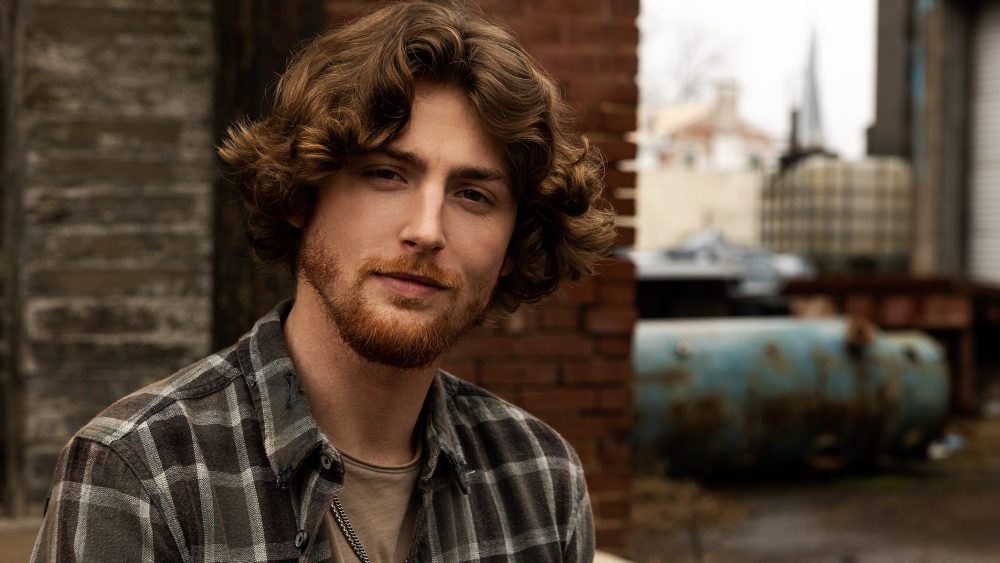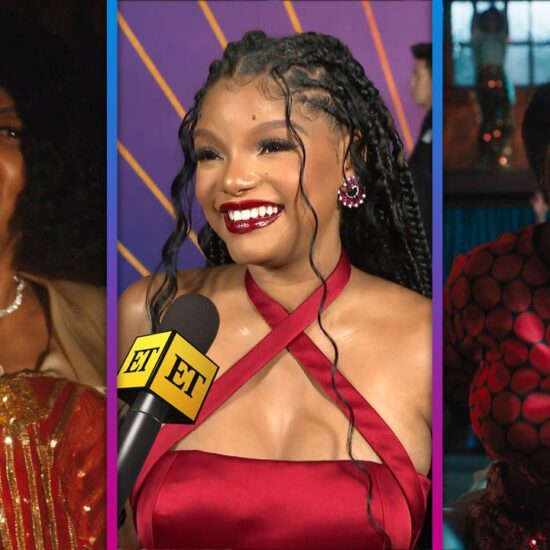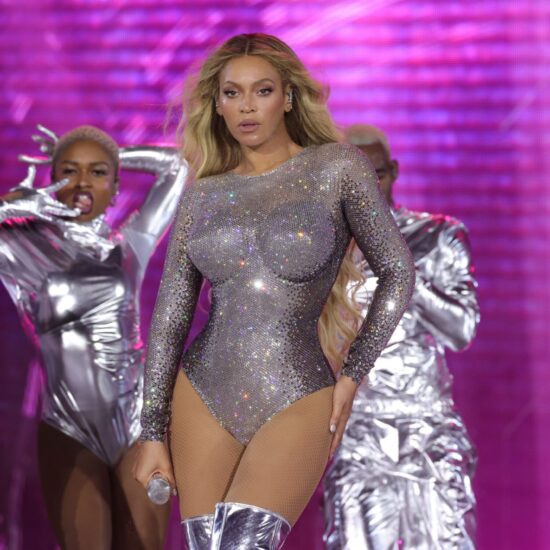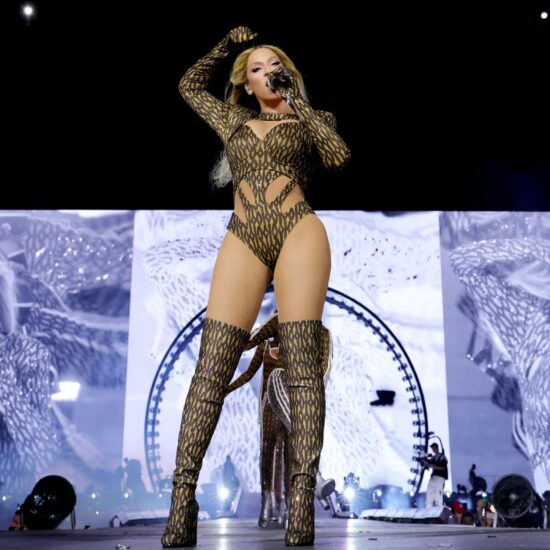
When the lineup for the 2024 Stagecoach Festival was announced earlier this month, Bailey Zimmerman’s name was up there on the second line, right beneath Morgan Wallen’s. It represented a heady move up into the big leagues (and big fonts) for a 23-year-old who had only the most scant awareness that there was such a thing as a country music industry a few short years ago. Now, he’s had some of the biggest songs of the past year, not just in the country realm but on the all-genre charts, including the still-rising “Religiously,” the title song of his debut album.
When “Religiously: The Album” came out in May, its first week won Zimmerman credit for having the biggest streaming debut album of the year in any genre up to that point in 2023, along with, not incidentally, the best streaming bow for any debut country album, ever. Needless to say, he had a lot going for him already to arrive at that place: “Fall in Love” and “Rock and a Hard Place” had already both gone No 1 at country, and the latter entered the Billboard Hot 100’s top 10 while spending six weeks atop the country airplay rankings. “Religiously” (the song) is about to give him a three-peat, from all indications. He’ll be remembered as one of 2023’s breakout, whether or not he becomes the rare country performer to score a best new artist Grammy nomination.
Also rare is the way Zimmerman has been an exception, not the rule, in parlaying being a smash on TikTok into becoming a smash by the standard measures of radio and streaming. He had a head start: The rural Illinois native had a significant social following as a viral truck guy before he ever thought to use the medium to sing. Warner leaped in to make sure the rest was history.
When Variety caught up with Zimmerman, he was rejoining the Morgan Wallen tour, where he’s opening shows for most of the year before starting his own headlining trek next year at L.A.’s Novo on Feb. 1. But April 28, 2024 is the date most SoCal fans will have circled on their calendars, as he joins tourmates Wallen and Hardy out at Stagecoach to recreate their touring chemistry on the final night of the fest. (Passes have just gone on sale.)
In learning about your history, we know you weren’t all that steeped in the ways of country music or the industry until even a couple of years ago. Was something like Stagecoach out here in California even on your radar very long ago?
No, and that’s the craziest thing. I grew up in a small town of 800 people that was basically three hours from anywhere, so I never got to go to festivals. I never got to go to concerts — I only went to like one, when I was like 8, and it was a Tesla show. So when I got into music, I knew nothing. Then when I started touring, that’s when I started to learn like how important these shows that I’m getting on are. I got to go to Stagecoach last year and play at, I think, 4:30. There was not a huge crowd in the front, but I didn’t realize in the back, behind the fence [separating the VIP area from a general area], were, like, 20,000 people. When I saw that they were not just standing out there but singing with me and screaming, I was like, “Holy cow, so this is what Stagecoach is. I get the hype now.” … When I heard that I get to play it next year with Morgan and Hardy, I was like, Stagecoach is about to be lit.
You’re known for your heartbreak songs. On the tour you’re on, you’re going out there before Morgan Wallen and Hardy, who have a lot more rowdy party anthems. Does it work to go out there and break people’s hearts a little bit first, or is the tone of your set more of a pure good-time thing than the album would suggest?
I’ve only been an artist since December of 2020. So I jumped into music so fast that when I started touring, that’s when it started getting on the brain: I like these heartbreak songs, and everybody loves them, but do I need rowdy songs? And when I first got out on Morgan (Wallen’s tour), I quickly realized, no, you just need to keep doing what you’re doing. Because the heartbreak anthems we have are upbeat — so instead of being sad, you’re almost mad. It’s not necessarily “Let’s go drink beer,” but it’s “I still can drink beer to his songs because of how rocking they are and how much fun he is on stage.” I make up for the lack of party anthems with my crazy dance moves and getting into the music a lot. I’ve got a couple songs in this 25-minute Morgan set that are pissed-off anthems, almost, like a song called “Where It Ends,” where you’re mad at her for wasting your time and making you think that she loved you. I really want to start writing more of those songs that are pissed off instead of sad, because I feel like that is my party anthem, in a sense.
The album is pretty close to being a concept album, as far as like your commitment to sticking with the theme. In doing a count, out of 16 tracks, 14 are breakup songs. Then in the middle there, you’ve got “Found Your Love,” which is a cheerful love song, but that’s the outlier, with “God’s Going to Cut You Down” being the other exception. Otherwise you stick to the theme. Is that just where your brain goes as a writer, or is it only because that’s what you were going through at a certain time?
That is kind of my vibe. I’ve never been like, “Man, I want to make it all sound the same.” It just came out that way: This is what I know. When I started, I didn’t know how to write a song. So how I’ve done it the last three years is just get in a room and start spitting out what the chords make you feel. Every single time, it comes out to be upset about a breakup, because that’s basically all I know, man. I’ve been in love before, and the breakup of that love was what made all these songs. I really thought she loved me and I really wanted to marry this girl. Then all of a sudden it was like, flip the script. It was just awful — a terrible time in my life. So, “Religiously: The Album” is really those songs that I wrote and this is how I felt when I wrote them. When I would hear a track, it wasn’t like, “Party!” It was always like, “No, I’m pretty sad, man.” That still gets to me every day, and I still think about it all the time. And it feels like people are really relating to this, and I’m talking to a lot of people, and I think I’m just going to stick on this vibe until my mind doesn’t want to. Because I still have no idea what I’m doing and how to write songs.
Bailey Zimmerman performs onstage at Country Thunder Wisconsin – Day 4 on July 23, 2023 in Twin Lakes, Wisconsin. (Photo by Joshua Applegate/Getty Images)
Getty Images
So was “Found Your Love” written to add a little respite from the pain in the middle of the album?
There’s a deeper meaning to that song. “Found Your Love” was cool because I wrote it not about me, but about my grandpa and my grandma’s love. I wrote it through the eyes of my grandpa. He raised hell, he was drunk all the time, he partied his ass off, and my grandma still loved him through it all. And then, before he died, he found God and really changed his whole life. He quit smoking, quit drinking and started focusing on family more and God more, and going to church with my grandma and making that relationship better. And that’s what “I never thought that I’d ever hang it up until I found your love” was about. I’m not talking about just my grandma’s love in that situation. I’m talking about God’s love as well, because I feel like my grandpa wouldn’t have got on the right track to know Jesus if he wouldn’t have given it all up and hung it up.
When I came to Nashville, I had one song out, called “Never Coming Home.” I needed a new producer, and I got with this guy named Austin Shawn, and I’d never met him before. The first day that I got with him to write songs down in Nashville with my buddy Gavin (Lucas), we wrote three songs in one day — “Found Your Love,” “Change” and “Waiting” — and those three tracks are all released now. But “Found Your Love,” I played it at my grandpa’s funeral. My grandma has always loved that song because I explained to her that I wrote it through grandpa’s eyes. I didn’t know at the time that I’d ever get to put out a full-length album or how my career was going to go. After my grandpa’s funeral, my grandma said, “I want you to put that song on your first album so I can listen to it all the time.”
I remembered her saying that at the funeral, and when we went to go make the album, I said, “This will be the only love song on the album, and it’s for my grandma and grandpa.” But all the heartbreak stuff on “Religiously: The Album” is truly all me, man. It’s all of my emotions, all the things I’ve thought about in relationships, or problems I had, or things I wanted to bring up in a relationship that I couldn’t, so I wrote a song about it. And I probably will stick with the heartbreak stuff until I fall in love.
The title song, “Religiously,” is No. 2 on Mediabase’s country chart right now. It’s looking like it may be teed up for you to go three-for-three at No. 1.
Let’s go! It’s crazy, man.
The sentiment is universal, but even though a lot of people have written songs likening earthly romance to something spiritual, the title is novel.
That song has a crazy story, too. When I first started writing and recording, and met my producer and signed with my management, I was maybe two months into being a singer. I was very confused, trying to figure it all out — just like I am now. I got back in the car after meeting my managers, and one of them sent me a song, and it was the first song I’d ever got sent to me. I actually said, “What is this? What am I supposed to do with this?” They were like, “We want you to record this song. It’s been through seven or 10 different artists. Nobody likes it. Nobody wants to cut it. But we believe in this song and really think it can touch a lot of people.” It was called “Religiously,” and I listened to it, and the song was weird, the production was weird, and the melodies were a little off too. And I went through all this stuff I wanted to change, and at first they came back and were like, “No, we want it to stay the same,” but then like 20 minutes later, they got me back and they’re like, “Hey, we want you to record this song. Do whatever you want with it. … Can you go in the studio tomorrow?” This was February or March of 2021.
I go in and I record it with a guy named Joel Bruyere, the bass player for Thousand Foot Krutch (the Canadian Christian hard rock band]. I said, “Hey, man, I really want this song to be more acoustic-driven, live drums,” because at the time it had trap beat drums on it. One day I’ll put out that version of this song and how it started out. I said, “I want Dobro” and all this stuff. We came up with the first demo of “Religiously” in 2021, and I believed in it from day one. I just loved the song. I was listening to it religiously, seriously, every single day. …. One of my manager’s name is Chief. I called him and I said, “Chief, did you hear ‘Religiously’?” And he was like, “It’s a smash. What you did with this is what it’s needed the whole time.” I’m like, “Yes, dude, but I don’t want to release it (now). If I ever get to put out an album, this will be my title track, and it’s going to be called ‘Religiously: The Album.’”
And he was like, “That might be a long time.” And I’m like, “I know it’s going to be a long time. But the reason I want to wait is because, in part of the song, it says ‘And lately life’s been good to me / Mama’s healthy, and I’m helping out the whole family / A lot of people know my name / I made a little change, but it don’t mean nothing.’” At the time, that didn’t relate to me because I wasn’t a big artist. So I said, “No, I’m going to wait until this song more relates to me and I can really feel this song better.” … So this song that’s at No. 3 right now went from a trap beat, rapped version of the song all the way to an acoustic-driven country song — if you want to call it country; whatever you call it.
You’ve set streaming records for a country artist with the release of this album. There’s artists who are all over radio, but can’t get streaming numbers to save their lives. Then you’ve got somebody like Zach Bryan, who’s a streaming monster, but still hasn’t really gotten the radio play. And then you have got the streaming and the radio obviously happening in a huge way now. But it seems like you started out by eliminating the middleman, building that audience online and digitally, and radio wanted to get in on it.
Yeah, and I’d say, once we signed with the label, they have their tactics on how to push stuff more and do their business thing. But I think in the grand scheme of it all, it was just me in front of a camera trying to get people to listen to my songs. And before that I was putting lifted trucks on social media. It’s kind of funny — my lifted truck was famous before I was famous for music.
I was driving around this black lifted truck that I built to put on TikTok. This was my dream truck and I started filming it and getting a lot of followers just from my personality and me being a part of the truck scene on TikTok, driving my truck all over the country to meet up with the fans at the shows. So when I was going around doing all the truck stuff, traveling with a hundred bucks in my pocket just to go to Orange Beach, Alabama for a truck show… I just love trucks. And that is what built me, my truck fans. Then when I first put out my first-ever video of me singing, which was just in my grandpa’s shop back home, with my buddy Gavin Lucas playing a guitar while I was just singing… That video was never meant for TikTok. I was just recording it to remember my melodies and stuff that we had written that night. But when I got home, I posted it, and it blew up overnight. I remember reading all the comments like, “Hey man, I didn’t know you were a singer. I thought you did lifted trucks. Like, are you gonna be an artist?” They were all so confused, too.
And I think that’s what really kind of gave me that step up was like, I had already built a fan base through the truck scene, and now I’m gonna do music. And I just kept putting videos up every day, doing the things that I thought I should do. I never quit doing social media. I probably never will. I’m on there two or three times a day, on every platform. I just love the life of it so much, having fans on social media and being able to put your songs out before they actually come out just to see what people think of them.
I remember when I first had the song come out, man, I sat on my couch and stayed up all night three nights in a row, just replying back to DMs, saying thank you so much for supporting me, and listening to people’s stories and how it’s helped them. And that is what I believe really made my fan base so badass like it is, is that I was so engaged in the beginning. And I’m still engaged now.

(L-R) Bailey Zimmerman and Nelly attend the 16th Annual Academy of Country Music Honors at Ryman Auditorium on August 23, 2023 in Nashville, Tennessee. (Photo by John Shearer/Getty Images for ACM)
Getty Images for ACM
The more you put yourself into it, the more outcome you’re gonna have. You wanna make sure you’re still thinking about your family. Out on the road, I just think of my fans as my family, and I need to make sure they know I’m still here and I still love them so much and I’m so grateful for this life. I’m so blessed to just wake up every day and not worry about my gas bill or about my truck getting repo-ed. … The most important piece of this all for me is the fans and making sure they’re taken care of and making sure they’re happy and loving what’s going on.
You mentioned Tesla being your first concert, and you’e said you didn’t really grow up on country so much, but a lot of Foo Fighters and Hinder, and your mom was into that melodic hard rock thing. So, even though that’s not exactly what you’re doing now, does it filter into what you’re doing?
Yeah. When I first started until now, they’re always like, “Your music is different, man. It’s a little rock too. It’s got this edge to it.” And I would really give that all to Nickelback and Tesla and Hinder and Three Doors Down and Three Days Grace and, I mean, seriously, every rock band I’ve probably listened to. My mom is a rocker from day one, dude. She’s got spiky hair, smokes cigarettes, wears Harley Davidson (gear). She’s got bling all over — she is a rocker mom. So that’s what I grew up on. I also grew up listening to country just because that’s what was on the radio, but when me and mom were in the truck, it was nothing but rock.
Like I said, Tesla was the only show I’ve ever been to in my life. Well, , I’ve been to more now. But before I was an artist, it was a Tesla show when I was maybe 12 years old. I remember watching (lead singer) Jeff Keith’s stage presence and how he always ran into the front, right at the start of the show, and he was energetic and just lit. Then when I would watch Foo Fighters on YouTube, Dave Grohl would always sprint to the end of the catwalk. So, when I got into the live music part of it, I still relied on my rock brain — like, how do I make this sick and not just stand here?
So really in all aspects of my music, it’s got a lot of rock influence, just because that’s what me and mom listened to. And it was crazy how everybody’s like, “Man, your songs are like super rock and your songs are super edgy” – yeah, because of Nickelback! That’s all I jammed when I was little. So when I’m writing these songs I’ve got a little bit of country in me, and I also have a lot of rock in me, so I’m just writing right down the middle of what I want to hear.













